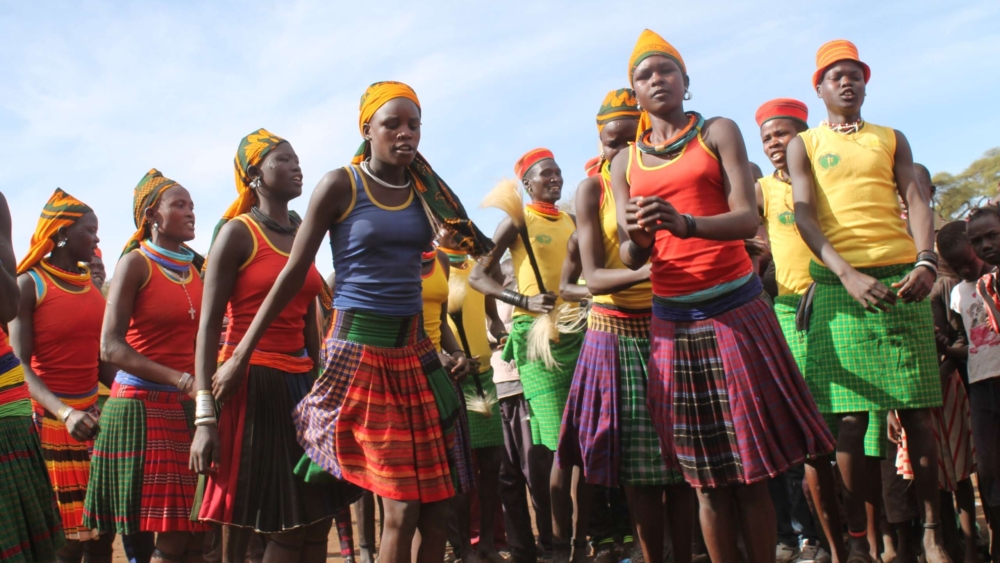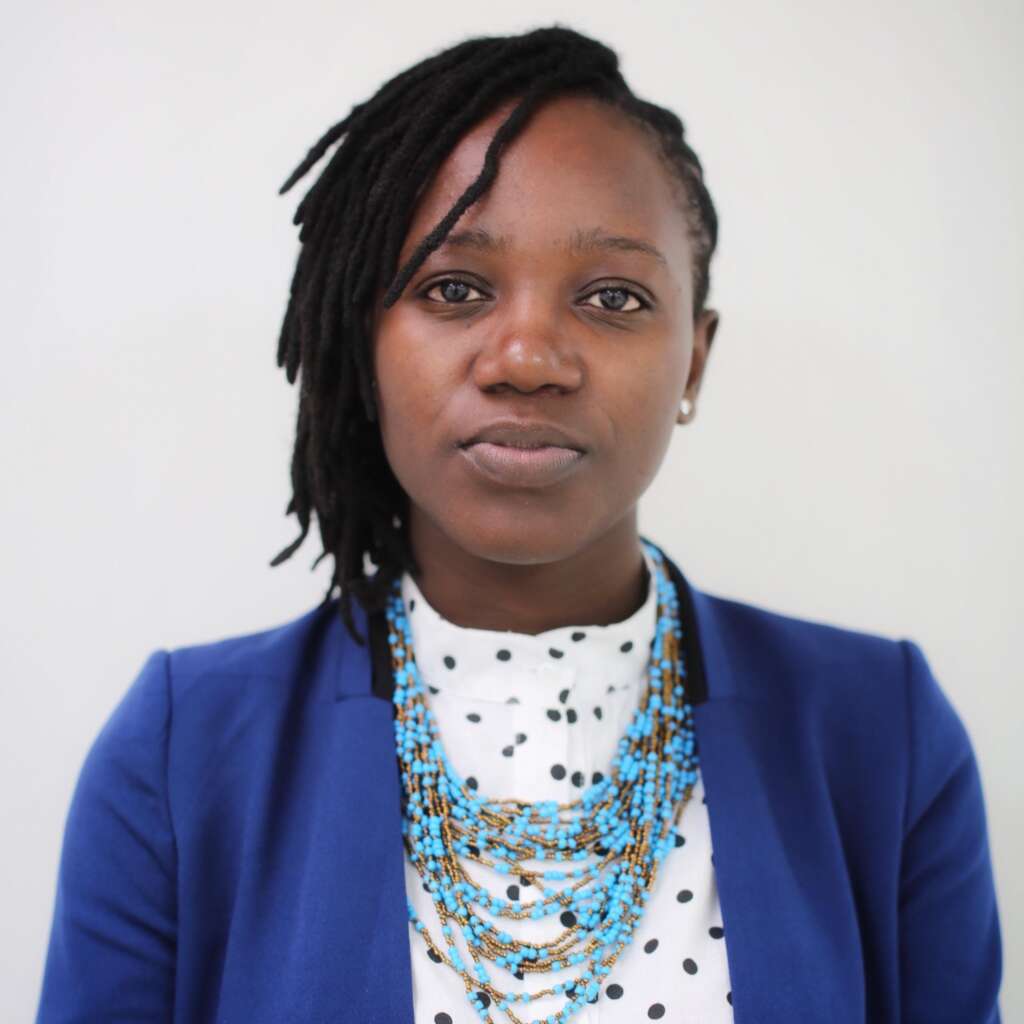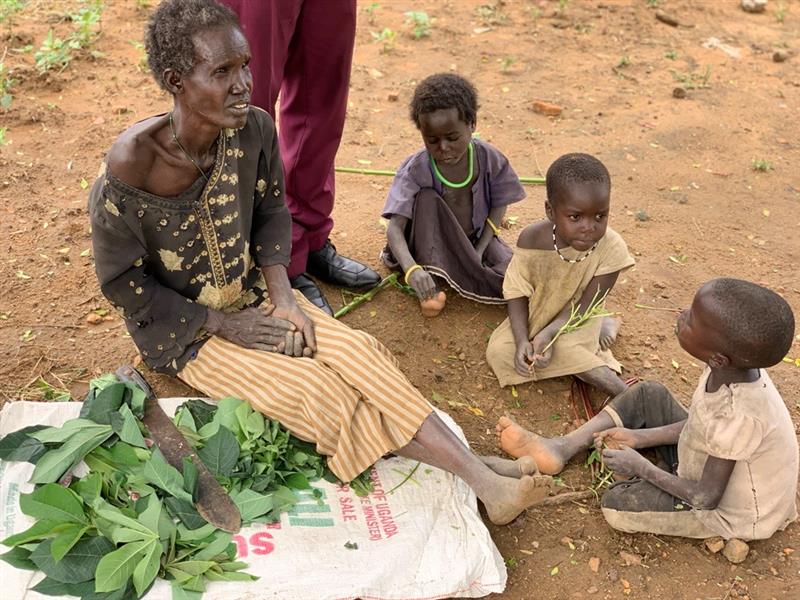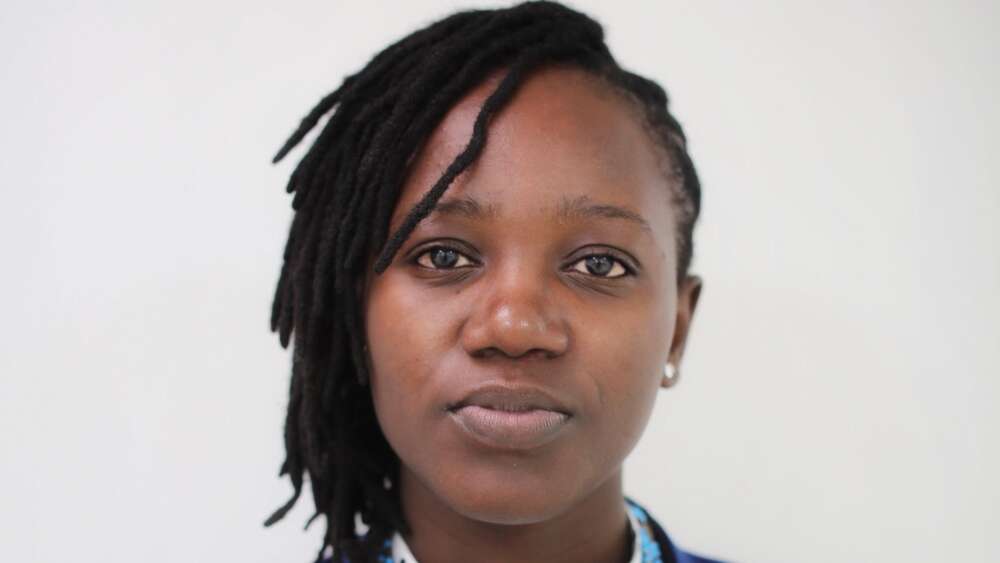Faith Magadi doesn’t cry easily, but tears overwhelm her as she remembers seeing children so weakened by hunger in Karamoja, northern Uganda, that they couldn’t stand up.
“Okay, a minute,” she says, turning off her video during our Zoom meeting as her tears prevent her from continuing.
The Senior Manager of Program Design for Compassion, based in Nairobi, Kenya, oversees food security and global food prices for all 29 countries in which Compassion operates. So when she heard that people were dying of starvation in Karamoja, she decided to see the situation on the ground for herself. This was last August at the height of the global food crisis.
“I was devastated by what I saw in Karamoja,” says Faith, a mother of one and a disaster resilience expert.
“Compassion’s work is a drop in the ocean in Karamoja. And I still think about it … because I saw children who are malnourished, children who cannot stand up on their feet because they were hungry, children who were eating raw leaves.”
“They say they have no hope and don’t know where the food will come from.” – Faith Magadi
Faith explains that while Uganda is a reasonably food-secure country, the Karamoja region remains volatile because of its proximity to South Sudan and Northern Kenya, where conflict and insecurity are prevalent; it’s a dry area that doesn’t receive much rain, and people traditionally move around herding their livestock rather than farming for a living. As a result, vulnerable people, especially children and women, struggle to get enough food, resulting in a devastating toll; there were reports of 2,465 deaths in Karamoja last year, mainly children and the elderly.

Warriors in Karamoja, Uganda Wikimedia
Compassion staff in Karamoja were overwhelmed by the number of children coming to their gates asking for food, and they found it heartbreaking to have to turn them away. Faith is still haunted months later because when she saw these children, she imagined the same fate befalling her own child.
“That was so difficult for me,” says Faith. “You start feeling like what you’re doing is not enough. I’m sorry – I’m not even a crier. I try not to think about it so much – my emotion keeps surprising me. Still, it was devastating to see children on the road half starving, malnourished, eating wild fruit, eating wild leaves, raw. And just listening to their stories – they say they have no hope and don’t know where the food will come from.
“And you think of the program in Compassion and the work we are doing and the little that we put on their plates they share with the community, their neighbours, and their relatives, and it’s not even enough. Karamoja really, really struck a chord with me.”

Faith Magadi, Senior Manager of Program Design for Compassion Kenya.
At Faith’s urging, Compassion International stepped in, providing 22,076 food packs to 102,310 people in Karamoja and 18,603 food packs to 120,344 people in Uganda’s Northern and Eastern regions from August 2022 to March 2023. Food distribution is continuing until the anticipated harvest season.
But last week Faith broke down for another reason when she saw recent pictures of a family she was worried would die – Lucia, her four children, and many grandchildren.
“I thank God because I took pictures and I took videos of this lady who was a grandma and she was taking care of her grandchildren. They were eating leaves, they were malnourished, she was sick, and they did not look like they would survive one month after that visit,” Faith recalls.
“At that point, we said Compassion has to support this family – they’ll die if we don’t. The report I received last week from the Uganda office showed this grandma looking healthy, looking happy. Her children and her grandchildren are looking well. The situation has turned around. Karamoja is not yet at a hundred per cent, but nobody is starving. I read that last week, and I just broke down.”

Lucia with her grandchildren in August 2022
Faith was so moved because she assumed Lucia and her family had died, but her children and grandchildren are now all sponsored and being monitored to ensure they don’t become malnourished again.
“What we still do is very little, but God stretched it. And it was able to change this family’s life.” – Faith Magadi
After receiving medical treatment and essential food aid, Lucia was able to walk on her own. Today, she is grateful for the compassion and support that saved her life.
“Lucia is healthy, happy, and has hope in life. She’s taking care of four of her children. I was so encouraged by that story because what we still do is very little, but God stretched it. And it was able to change this family’s life, and I think it’s just encouraging to see that it’s worth something.”
While child sponsorship remains Compassion’s primary way of serving children and their families, non-sponsorship Critical Needs is a hugely significant part of Compassion’s work, accounting for most of the money supporting families during the global food crisis. Click here if you’d like to donate.
“Some donors are interested in bulk giving. Some donors are interested in giving for [long-term] intervention. So with the global food crisis, it’s very encouraging because we have had donors who just come in and say, ‘I want to support the work you do in Haiti. I want to support the work that you’re doing in Ethiopia.’”
Faith asks for prayers for wisdom for the top leadership of Compassion in steering responses to the food crisis “because it’s an overwhelming season for everyone – you’re constantly in meetings talking about starving children. It’s not an enriching or edifying conversation.
“These people are bearing the brunt of this challenge. I pray for grace and grace and grace on them because it cannot be easy.” – Faith Magadi
“The global food crisis is turning out to be bigger than we all thought it would be. The World Food Program is saying it will take a couple of years before the world stabilises and gets back to where it was pre-Covid, and it may never get back there.
“Also, pray for the people on the ground. You and I are sitting here talking about this, but somebody is serving and based in Karamoja; they walk by these children daily. Pray for the people serving in Haiti with gunshots and gun violence and a constant threat to their lives and their families are at risk … These people are bearing the brunt of this challenge. I pray for grace and grace and grace on them because it cannot be easy.”
Email This Story
Why not send this to a friend?



